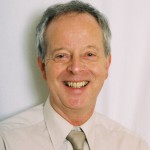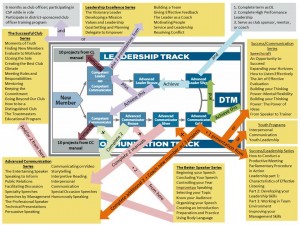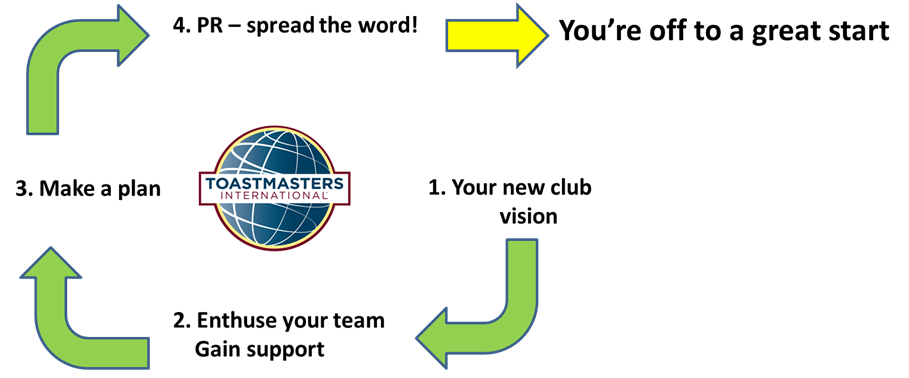Tips to help your public speaking – R.I.P.
In a top ten list of our human fears, speaking in public (glossophobia) out-ranks death. Why? It’s because public speaking anxiety combines the fears of the unknown, failure, rejection, ridicule and being challenged.
Is there an answer? Yes, there are two; both simple, both powerful. Preparation in advance and your audience’s hard-wired self interest. Thorough preparation (that comes, mostly into the ‘R’ group) promises a winning speech or presentation. Your audience wants you to succeed. This applies whether your purpose is to inform, entertain, inspire or persuade.
Three ‘R’s
So let’s start with the three ‘R’s
Our first R is Research. It can be your launch-pad for success. Ask yourself – and have a clear answer to – the following four questions: What is your audience expecting? What is its profile? (age/gender/culture/interest). What about the venue? (size/acoustics/AV facilities)., and the key question: how do you want your message to make your audience feel? People may forget what you said, may forget how you said it, but they’ll never forget how you made them feel.
Our second R is Rehearse. Take a lead from the professionals. They rehearse their speech, time and time again, use audience feedback to improve, add power by making every word count and add polish, by creating a seamless speech. Here’s how: shape and signpost your structure; master any visual aids you use – and have a fall back option in case they fail. Practice vocal variety and gestures. Inject a story – audiences love personal stories!
Our third R is Re-write. Cut and polish your speech – as a jeweller fashions a gem. Use uncomplicated language. Paint pictures with words. Engage your audience with rhetorical devices such as, alliteration, delete disposable detail (an example combining a three part list with alliteration).
Well-placed pauses and metaphors help retention by your audience. Your aim is to pack performance punch. Another key point – focus on keeping time. Bear in mind that average speech delivery speed is 1.5 words per second. So a seven minute speech allows no more than 630 words
That wraps up our three ‘Rs’. Now for our three ’Is’.
Three ‘I’s
Our first I stands for Invite. Listeners like to be invited into your speech. Here are some how’s. Use inclusive, open gestures; ask questions rhetorical or active; keep eye contact. Use personal pronouns: we, us, our, you, your. Take John Kennedy’s invitation to countrymen for example: “Ask not what your country can do for you but what you can do for your country.”
Our second I is insight. Audiences like to learn. They’re moved by a fresh perspective. An astronaut, marvelling at our spinning earth below, said: “On terra firma maps, continents are divided by country boundary lines.” Our space traveller said “ I never thought about it before, There are no lines from up here!”
As Anthony de Mello said: “opening your eyes may take a lifetime, seeing is done in an instant”.
Next, our third I is ignite. Speeches can spark energy. Passion can fire emotion. Carefully crafted sentences, pauses, timing act like blue touchpaper — you light the fuse!
Marianne Williamson said: “our deepest fear is not that we are inadequate. Our deepest fear is that we are powerful beyond measure. It is our light, not our darkness that most frightens us”.
Doesn’t that sentiment set you alight?
Our three i’s were invite, insight and ignite. Now to our ‘p’s.
Three ‘P’s
Our first p is for profess.
To connect with our audience; we need to declare our intent. Mark Antony famously said: “I come to bury Caesar, not to praise him”. Winston Churchill’s speeches inspired. By wedding his words to winning the war – his intent was crystal clear . When you profess, do it from your heart
Our second p is for progress. To keep our audience alert, we need to ‘signpost’ our speech’s journey. Have a clear structure. Make logical links and telling transitions between sections. Use body language try changing position
Our third p? – possess. Our audiences want to be, in a sense, possessed.
David Attenborough
Years back I recall a recognition event for 400 top performers with a theme of shaping tomorrow. The honoured guest speaker was David Attenborough when his seminal book Life on Earth was a best seller.
His keynote speech described his experience with Africa’s great silverback gorillas. David’s delicate delivery unfurled these giants’ gentleness with a powerful poignant cameo.
“I lay down on my back at full stretch, my bare feet facing the gorilla. At first shy, he stood stark still, then ambled forward, paused, locked his eyes on to mine, bent down and delicately stroked my bare soles with his fingers’. It tickled and tempted me to titter”.
David was possessed.
After a few moments, David’s mood moved to melancholy as he said: “a few days later at a tourist souvenir stall, a gorilla’s hand like, the one that tickled my feet, was on display for sale – as an ashtray”
You could have heard a pin drop; 400 people’s attention held in the palm of David’s hand. Not a dry eye, not a soul unmoved, not a mind unengaged.
The audience had been possessed.
Moments later, after a passionate close, the audience exploded with applause. David’s mastery researched, ignited and possessed.
Fellow speakers, to sum up. You can shape your future speaking success. The techniques described above can be practised and perfected.
Forget gravestone grief – Think successful speeches.
About the author

Robin Chawner has founded, co-founded or helped develop Toastmasters Speaking clubs in Brighton, Bristol, Chichester, Fareham, Newport, Portsmouth, Southampton, Winchester and Worthing.
Robin has coached National Contest speech winners in inspirational and humorous speaking, and also mentored hundreds of people in their journey to success from shy starters to confident communicators and level-headed leaders.
 The current programme is good, but it is complicated and hard for new members and those outside Toastmasters to understand. If you need convincing, take a look at this diagram showing our current education awards!! And far too many members leave Toastmasters without gaining awards – so there’s certainly room for improvement!
The current programme is good, but it is complicated and hard for new members and those outside Toastmasters to understand. If you need convincing, take a look at this diagram showing our current education awards!! And far too many members leave Toastmasters without gaining awards – so there’s certainly room for improvement!


